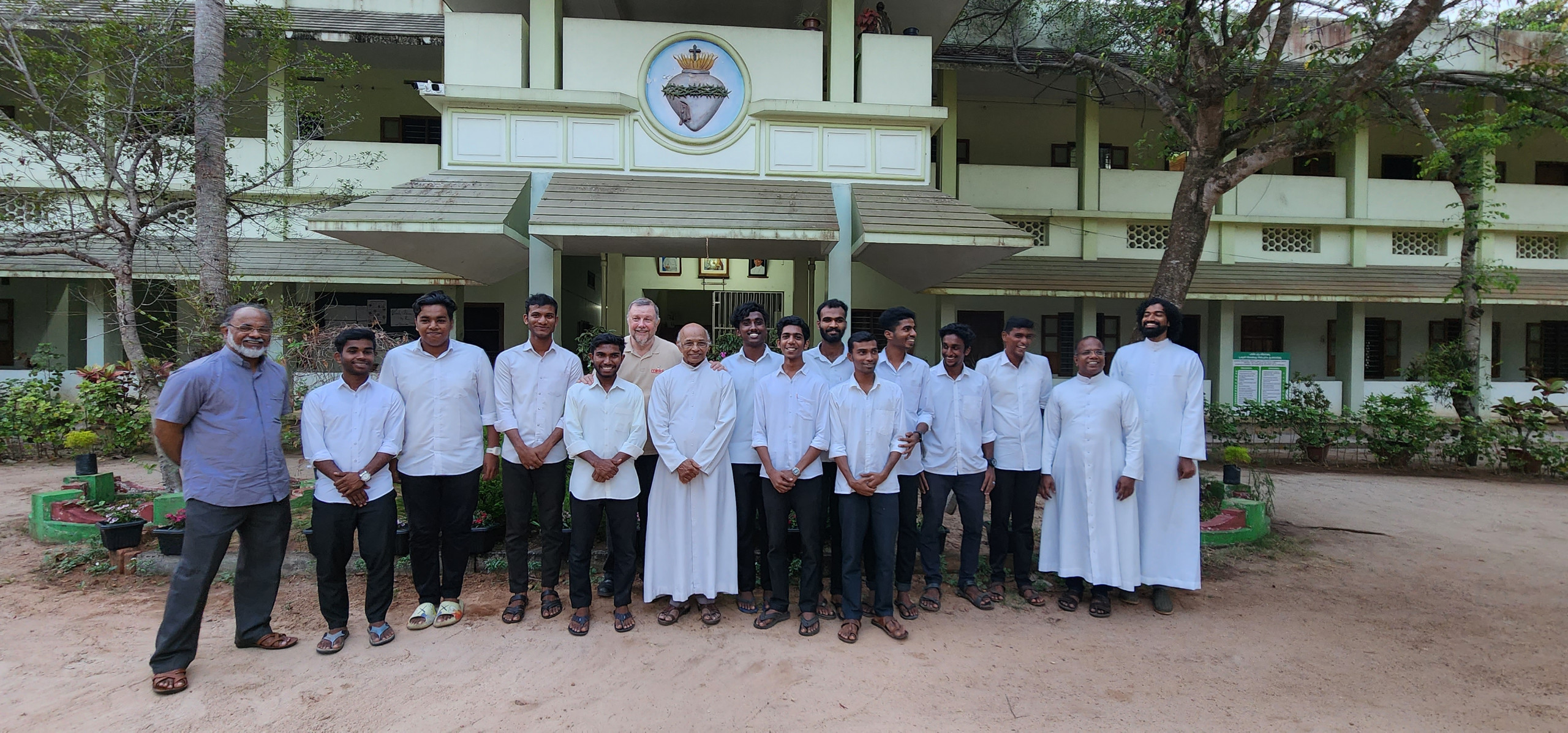
As the 19th century was ending, French laywoman Jeanne Bigard and her mother, Stephanie, received a letter from a French bishop who was serving in Japan. He wrote asking them for prayers and help: more than 50 young men were preparing for the priesthood, and he was struggling to provide for them and the growing number candidates to the priesthood.
In 1889, Jeanne and Stephanie established the Society of St. Peter Apostle to support mission vocations, both priestly and religious. In the first year of its foundation, the Society aided about 2,700 seminarians.
Subsidies for students
Today, 28,000 major seminarians, mostly in Asia and Africa, receive an average annual subsidy of $700 per student; assistance is also provided for men and women religious novices.
One of these seminaries is the St Pius X Archdiocesan Seminary of Bombay, where 100 young men are studying for the priesthood.
“We are very thankful for the financial support from The Society of St. Peter Apostle because it is not possible for the Christian community in Mumbai to take care of all the needs seminarians have,” said Father Aniceto Pereira, who runs the seminary.
“We rely on your help to send some of our seminarians to further their studies in Rome. This is particularly important for us, because we need well educated and trained formators to elevate the education of our priests here.”
The St. Pius X College.
Diocesan seminary of the Archdiocese of Bombay.
Founded in the 1960s.
It has 100 students.
10 new priests are ordained each year.
Nevertheless, even though paying the bills at the end of the month is a constant looming concern for Father Aniceto, he said that what the seminary needs the most are prayers.
“We want to have a vibrant generation of diocesan priests who witness their faith throughout their ministry, and we rely on the prayers of Catholics in the United States because we are a very small minority here in Mumbai, and in Asia as a whole,” he said. “We are inspired by the vibrancy of other local churches, and we are thankful for the support we receive from the universal Church in the form of prayers and missionaries, ready to leave everything behind so that others can follow Christ.”
Studying theology
Not all of those studying at the seminary are here because they are called to the life of a priest: in recent years, the Archdiocese led by Cardinal Oswald Gracias launched a pilot program allowing a handful of women to attend the seminary, acknowledging that many parishes rely on lay leaders for everything that isn’t the sacraments.
Blessy Rebello is one of these students. Married and mother of five, she approached the seminary following the incessant questions her children had about their faith, many of which she couldn’t answer in a way that was satisfying.
When she found out that training was available for her too, she talked about it with her family – since it was going to be time-consuming – and they all agreed it
was something she needed to do.
In her third year of theology now, she states, “I still don’t have all the answers, but at least I know where and how to search for them.”
She says one of the biggest struggles the Church has today is that
“people are learning to live without the Church, finding solace in their phones, through social media or other things. We often hear that people simply didn’t come back to Mass after the COVID-19 pandemic. However, it must make us wonder what formation they had if after they skipped Mass a few Sundays, they threw the baby with the bathwater.”
Praying for vocations
Moreover, there’s also the fact that most parents no longer see having a daughter become a religious sister or a son in the priesthood as something good.
“We need to be better parents, acknowledging the need and value of having holy priests and nuns in the Church,” she said. “Oftentimes, when a person prays for more vocations to the priesthood, they do so with a caveat ‘make my son a doctor, but the neighbors’ son a holy priest’. What about you? Do you pray for a religious vocation within your family, or for a doctor?”
Discernment process
Brother Christopher Fernandez says he began his path towards becoming a priest during his “youth” (he’s 25 now!), participating in his parish’s activities: “We had truly amazing priests, who touched me deeply and inspired me.”
During his discernment process, he was particularly worried about not being sufficiently qualified to become a priest, but Corinthians 2:1-5 gave him the answer he needed, for “God does not call the qualified, he qualifies the called.”


